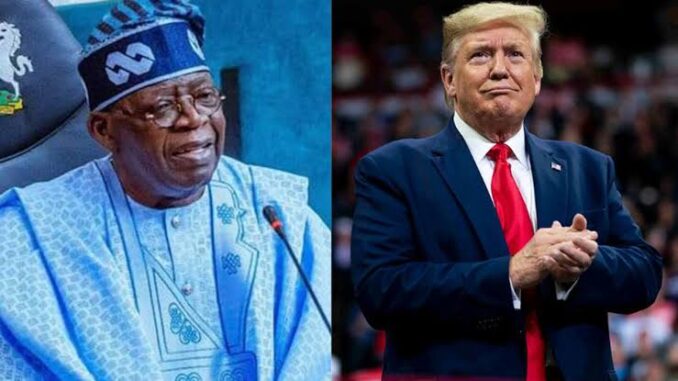
Breaking News: US Congress Empowers Trump to Impose Severe Sanctions on Nigeria, Details Emerge
In a historic move, the United States Congress has passed a resolution granting former President Donald Trump the authority to impose severe sanctions on Nigeria, marking a significant shift in US foreign policy toward the African nation. The resolution, which passed in a narrow vote, empowers Trump to take unilateral action against Nigeria in response to allegations of human rights violations, corruption, and issues related to Nigeria’s handling of terrorism and extremism within its borders.
This decision has been met with mixed reactions both in the United States and globally, raising questions about the implications for US-Nigeria relations, African geopolitics, and the broader international community. The move comes after months of growing concern within Washington over Nigeria’s government-led crackdown on civil liberties, the increased violence from extremist groups like Boko Haram and Islamic State West Africa Province (ISWAP), and the Nigerian military’s alleged abuses against civilians.
Details of the Sanctions and Their Impact
Under the newly passed resolution, Trump now has the authority to impose a range of economic and diplomatic sanctions, targeting specific sectors of Nigeria’s economy, government officials, and entities deemed responsible for the human rights violations and abuses. The sanctions are expected to include freezing assets, travel bans, and restrictions on trade, particularly in oil and gas exports, which form the backbone of Nigeria’s economy.
Trump has also been granted the power to restrict Nigeria’s access to international financial institutions, limiting its ability to secure loans or aid from global lenders, including the International Monetary Fund (IMF) and the World Bank. This could have severe repercussions on Nigeria’s economy, which has already been under strain due to falling oil prices and the COVID-19 pandemic’s economic toll.
A statement released by the US Congress detailed the growing concerns over Nigeria’s human rights record, particularly regarding the treatment of ethnic and religious minorities, arbitrary detentions, and the ongoing conflict between government forces and various insurgent groups. There have also been longstanding issues with corruption within Nigeria’s political system, which the US has cited as a major contributing factor to the country’s instability.
Political Reactions
On Capitol Hill, the resolution received support primarily from Republican lawmakers, with some Democrats voicing concerns about the long-term consequences of such actions. Supporters of the sanctions argue that Nigeria must be held accountable for its human rights abuses and that imposing economic pressure is a necessary step to push for reform. “The Nigerian government’s failure to address systemic corruption and ongoing human rights violations is unacceptable,” said Senator Lindsey Graham, one of the key sponsors of the resolution.
However, critics have warned that the sanctions could exacerbate the already volatile situation in Nigeria and worsen the lives of ordinary Nigerians who are struggling amid growing poverty and insecurity. Some have also expressed concerns about the diplomatic fallout from the decision, as Nigeria is one of the most populous and influential countries in Africa, with significant geopolitical importance for the United States in counterterrorism efforts.
International Reactions
Internationally, the move has drawn mixed responses. The European Union, which has worked closely with Nigeria on counterterrorism initiatives, expressed concern over the impact of such measures, calling for more dialogue with Nigeria to address the root causes of extremism and human rights abuses. On the other hand, human rights organizations have welcomed the decision, calling it a necessary step to pressurize the Nigerian government into taking meaningful action.
The Nigerian government has yet to formally respond to the sanctions, but sources indicate that the country’s leadership is preparing a robust defense against the allegations, with potential diplomatic negotiations on the horizon.
As the world watches closely, the outcome of this unprecedented action by the US Congress could shape US-Nigeria relations for years to come.
Leave a Reply